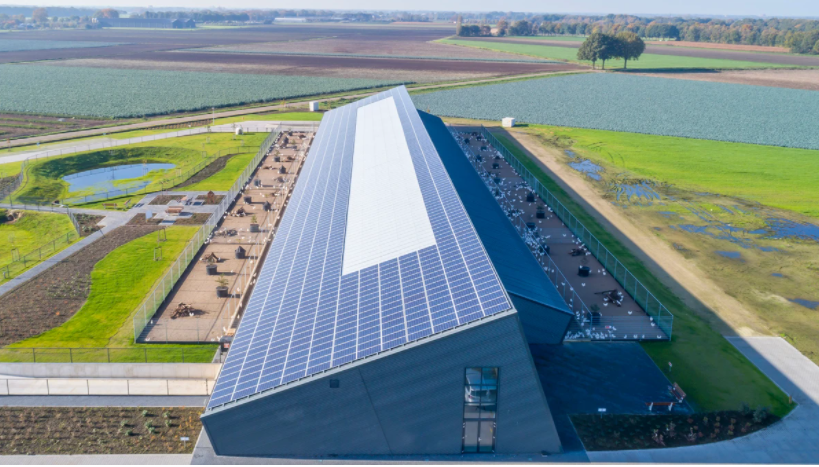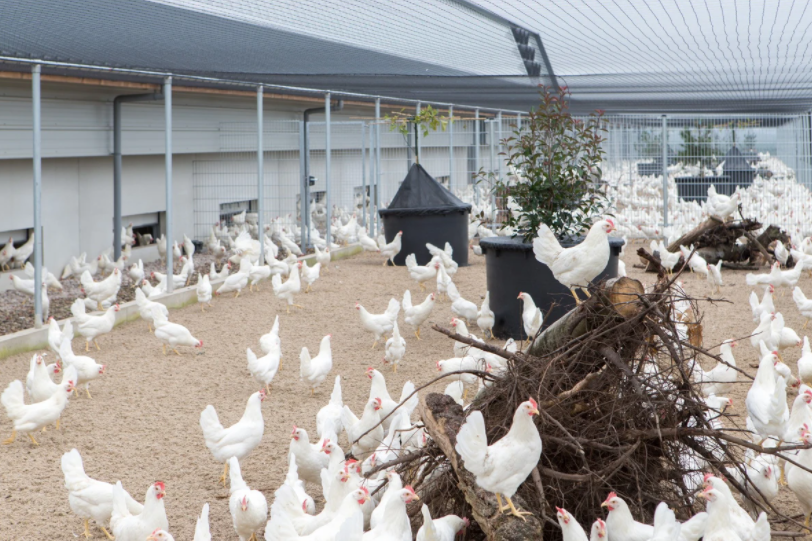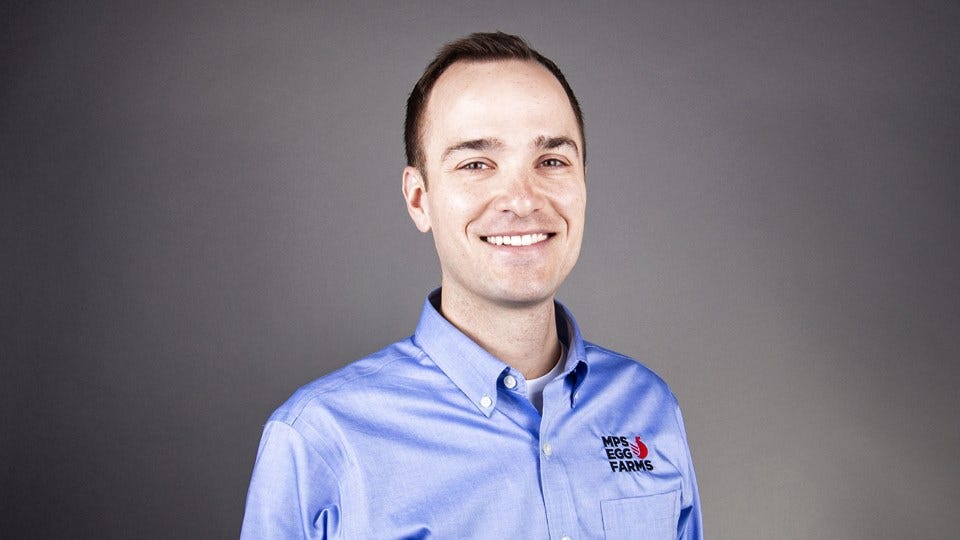MPS Egg Farms Invests in ‘Carbon Neutral’ Process
Subscriber Benefit
As a subscriber you can listen to articles at work, in the car, or while you work out. Subscribe Now
NORTH MANCHESTER, Ind. - North Manchester-based MPS Egg Farms has broken ground on a facility it says will produce the world’s first carbon-neutral, cage-free eggs for The Kroger Co. (NYSE: KR) and its Simple Truth brand. The system uses an enclosed barn, but still offers an open environment with a partial sunroof and wooded-like environment that allows hens to roam. MPS is partnering with Kipster Farms, an egg farm in The Netherlands that developed the concept.
In an interview with Inside INdiana Business, Vice President of Business Development Sam Krouse explained how the shift embraces the company’s mission.
“We really think that this is where consumers are headed. We’re seeing more and more consumers migrating towards higher end eggs,” said Krouse. “More people are going for things like free range, pasture-raised, elevated animal welfare standards. And it’s a place where we knew that MPS wanted to play. We love the idea of producing in a sustainable manner.”
Krouse says MPS is the first commercial egg producer in the U.S. to adopt this production model. According to the Kipster website, its concept puts hen health and welfare at the heart of the business. It seeks to improve egg production, globally, at the “economic, environmental and societal levels.”
“These eggs will be produced in a closed-loop system that aligns with the highest health and welfare standards for people and animals,” said Brad Studer, senior director, Our Brands for Kroger. “These sustainable, zero-waste eggs reflect yet another milestone in Kroger’s Zero Hunger | Zero Waste mission to help create communities free of hunger and waste.”
In addition to solar panels and natural lighting, the four new barns will also offer what Krouse calls a “jungle gym”-like environment for the egg layers.
“Their natural preference is to be pretty close to each other and to have room to climb. The Kipster model is based on a little bit smaller footprint, but more things, like trees, to climb on. So, the chickens can actually feel really safe and comfortable.”

The hen’s diet is also changing. Instead of corn or soybean-based feed, the Kipster system uses a special-developed feed made from surplus food generated by industrial bakeries and other food producers.
“Any bakery just by virtue of the way they produce has some overruns, like at the beginning of production or the end of production that needs to go to other uses besides human consumption. A lot of times that goes into animal feed,” explained Crouse.
While not organic, Kipster says the feed has a smaller carbon footprint than standard chicken feed. It consists of 95% leftovers and 5% vitamins and minerals.

MPS Eggs is one of the ten largest egg producers in the U.S and the first to invest in this system. The company’s history dates to 1875. In recent years, the company has evolved to include more sustainable production practices. Krouse says this latest investment is a natural progression and a response to consumer demand.
“This will be a really small piece of our volume business. We’re still producing eggs for the masses, but it’s an important piece to our portfolio in terms of kind of rounding out our offerings for any retailer,” said Krouse. “So, a small piece of our volume but important piece of the company strategy.”
MPS Eggs produces 220 million dozen annual. The Kipster process will produce two million dozen initially but could grow depending on demand.
MPS broke ground on its first of four barns in North Manchester in October. It expects to have Kroger’s Simple Truth eggs available in select stores in late 2022.
Krouse explained to Inside INdiana Business why the company made the investment and how the environment will change for the hens.
